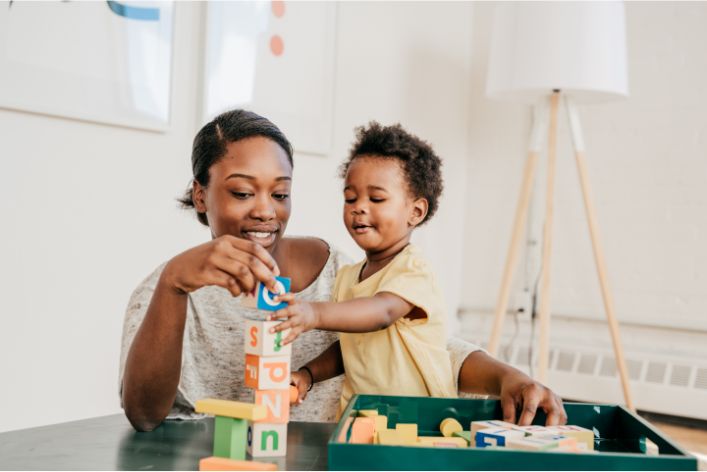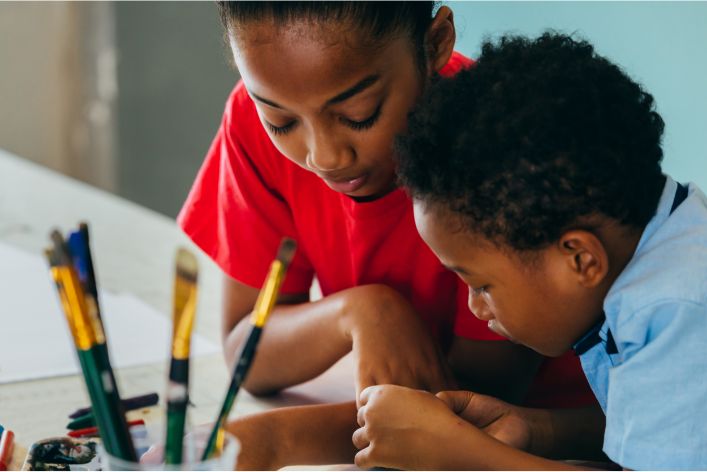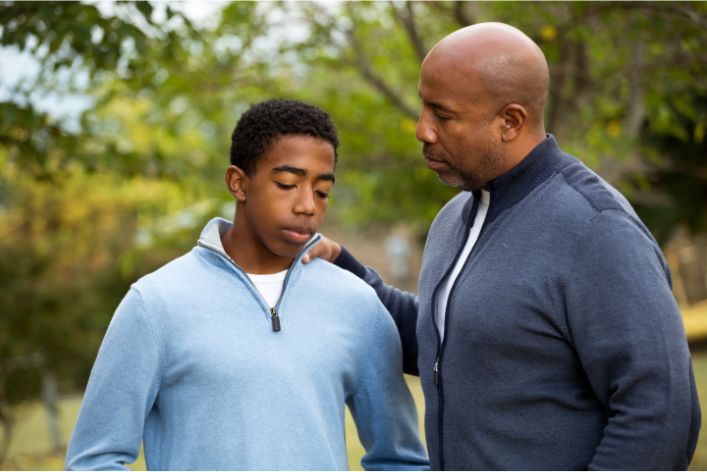Introduction
Welcoming a new child into the world is always an exciting time for parents, family, and friends. Over the first five years of a child’s life, there are many milestones to celebrate, from crawling and walking to the first words and beyond. These achievements can be both challenging and rewarding for parents, but they are vital to a child’s development.
It’s essential for parents to be aware of these milestones and understand their significance in shaping a child’s future.
Identifying any delays in a child’s development early on can help initiate early intervention, which is critical in ensuring that the child reaches their full potential.
As a call to action, parents should be more observant and intentional in this stage of their child’s life. They should monitor their child’s growth and development closely and provide a supportive environment that encourages exploration and learning. It’s also essential to seek professional help if there are any concerns about a child’s development.
The first five years of a child’s life are crucial. It’s during this time that a child learns vital skills that they’ll use for the rest of their life.
As parents, it’s our responsibility to ensure that we provide the necessary support and guidance to help our children succeed.
First Year Milestones
The first five years of a child’s life are crucial for their overall growth and development. It is in this period that they learn and acquire most of the skills that will shape their lives.
In this section, we will discuss the first-year milestones of a Nigerian child, including their physical development, cognitive achievements, and social and emotional growth.
Physical Development
During the first year, most Nigerian children grow rapidly, gaining weight and increasing in length. By the time they reach their first birthday, they have typically tripled their birth weight and grown to about 50% of their adult height.
Some of the physical milestones that parents should look out for in their child’s first year include:
- Rolling over
- Sitting up without support
- Crawling and eventually walking
- Gaining control of their head movements
- Developing fine motor skills such as grasping objects
Cognitive Achievements
In the first year, children’s cognitive abilities go beyond responding to stimuli and include their ability to remember things and solve problems.
Some of the cognitive milestones that parents should expect from their child in the first year include:
- Recognizing faces and voices
- Reacting to their name
- Copying simple actions such as clapping
- Showing curiosity about their surroundings
- Playing simple games such as peek-a-boo
Social and Emotional Development
During the first year, children start developing social and emotional bonds with parents and other caregivers.
Some of the social and emotional milestones that parents should look out for include:
- Smiling and laughing
- Showing affection by cuddling or hugging
- Copying and mimicking facial expressions
- Becoming attached to a particular caregiver
- Showing a preference for familiar people and objects
Tips for Encouraging These Milestones
Parents can help their child meet these milestones by engaging in activities that stimulate their growth and development.
Some tips for encouraging these milestones include:
- Providing age-appropriate toys that are safe and stimulating
- Offering opportunities for exploration and discovery
- Speaking and interacting with the child often
- Playing simple games that encourage social skills
- Providing a secure and comfortable environment
Signs of Concern and Solutions
While children develop at different rates, some signs might indicate a concern for a child’s growth and development.
Some signs that parents should be aware of include:
- Not gaining weight or growing in height
- Not making eye contact or reacting to noise
- Not reaching for or trying to grasp objects
- Not responding to their name or other stimuli
- Showing extreme emotional responses such as excessive crying
If parents notice any of these signs, they should consult with their pediatrician or healthcare provider. Early identification and intervention can make a significant difference in a child’s growth and development.
Generally, the first year of a Nigerian child’s life is critical in their overall growth and development. Parents should be aware of the physical, cognitive, social, and emotional milestones their child should meet during this time.
Parenting Made Just for You
Get personalized Parenting Solutions tailored to your child’s needs. Transform your parenting journey with expert guidance in 1-3 days.
Get StartedBy providing a stimulating and secure environment and seeking early intervention, parents can ensure their child reaches their full potential.
Read: Raising Future Leaders: Understanding Nigerian Child Growth
Second Year Milestones
During the second year of a Nigerian child’s life, there are several milestones to watch out for. These milestones are important indicators of the child’s growth and development. It is essential to keep an eye out for these markers and encourage them throughout the year.
Developing Language Skills
A child’s language skills begin to develop rapidly during their second year. They start using words to express themselves and understand more complex instructions.
Encourage their language development by:
- Talking to your child regularly and clearly
- Reading to them and pointing out objects in books
- Singing songs with them and teaching them nursery rhymes
Motor Skills
The second year is a prime time for developing motor skills. Children are more mobile and coordinated at this age.
Encourage their motor development by:
- Providing safe spaces for them to explore and move around
- Encouraging them to crawl, walk, and climb
- Playing games that involve throwing, catching, and balancing
Cognitive Development
Cognitive development in a child’s second year is marked by their growing ability to think and reason. They start to understand cause and effect, solve problems, and remember things more easily.
Encourage their cognitive development by:
- Playing memory games with them
- Providing them with toys that challenge their problem-solving abilities
- Encouraging them to explore and learn new things
Tips for Encouraging These Milestones
Encouraging a child’s milestones can be done in several ways.
Here are some tips to help stimulate your child’s development:
- Provide a safe and stimulating environment
- Be patient and give your child time to explore and learn at their own pace
- Interact and play with your child regularly
- Offer praise and recognition for their achievements
Signs of Concern and Solutions
There may be times when a child falls behind in their development.
Here are some signs of concern and solutions:
- Limited speech or communication – consult with a pediatrician or speech therapist
- Inability to stand or walk – consult with a pediatrician or physical therapist
- Disinterest in playing or exploring – consult with a pediatrician or child psychologist
In essence, the second year of a Nigerian child’s life is a time of significant growth and development. Parents and caregivers can help facilitate this growth by encouraging language, motor, and cognitive development.
It is important to keep an eye out for any concerns and address them promptly to ensure the child reaches their full potential.
Read: Nigeria’s Early Childhood Development: An Overview

Third Year Milestones
By the time a Nigerian child turns three, they have already accomplished quite a lot, but there are still many milestones to reach.
Here are some of the significant developments to look out for:
Developing social skills
A major milestone for children in their third year is the development of social skills. During this year, children become more aware of those around them and start engaging in more complex social interactions.
They learn how to take turns, share toys, and communicate more effectively with other children and adults.
Unveil the Perfect Name that Tells Your Family's Story
Let us help you find a name that embodies your family's values, traditions, and dreams. Our personalized consultation weaves cultural insights to create a name that's uniquely yours.
Get StartedEmotional control
Three-year-olds begin to develop emotional control, although it’s an ongoing process that takes several more years to fully develop.
At this point, children start to understand and identify their emotions better and become better at expressing themselves. They also start to learn how to deal with frustration and disappointment better.
Gross and fine motor skills
At three years old, children should be much more confident in their ability to move around and manipulate objects. They will be able to run, jump, and climb stairs with ease.
They will also have much better hand-eye coordination and will be able to draw more complex shapes and hold a pencil or crayon with a firmer grip.
Tips for encouraging these milestones
If you want to encourage the social and emotional development of your three-year-old, there are many things you can do. Here are some tips:
- Encourage playdates with other children to help your child develop social skills.
- Teach your child to use words and communicate their feelings, rather than resorting to tantrums.
- Encourage activities that require gross and fine motor skills, such as running, jumping, drawing, and playing with blocks.
- Model good behavior to your child and be patient with them as they learn to control their emotions.
Signs of concern and solutions
If your child is not meeting these milestones by the age of three, it’s important to speak to your doctor or a child development specialist.
Here are some signs of concern:
- Lack of interest in playing with other children or difficulty making friends
- Difficulty expressing emotions or controlling temper tantrums
- Lack of coordination when it comes to fine and gross motor skills
Some solutions to help your child meet these milestones include:
- Activities that promote social interaction, such as playing games and joining playgroups
- Modeling positive behavior and encouraging your child to express themselves with words rather than actions
- Activities aimed at improving motor skills, such as dancing, swimming, and coloring
- Working with a child development specialist or pediatrician to identify and address any underlying issues that may be causing delays in development
All in all, the third year of a Nigerian child’s life is an exciting time for both the child and the parent. With the right encouragement and attention, children can meet the milestones they need to become happy, healthy, and well-adjusted individuals.
Read: Cultural Impact on Child Development in Nigeria
Fourth Year Milestones
In the fourth year, Nigerian children are making significant progress in their cognitive and emotional development.
They are also gaining independence and exploring the world with newfound curiosity and enthusiasm. Here are some milestones to watch for:
Developing cognitive skills
- Can count up to 10 and recite the alphabet
- Can sort and classify objects based on color, shape, and size
- Can solve simple puzzles and follow multi-step instructions
Emotional maturity
- Can express a range of emotions including joy, anger, sadness, and fear
- Can show empathy towards others and understand their feelings
- Can engage in imaginative play and understand the difference between fantasy and reality
Gaining independence
- Can dress and undress themselves with minimal assistance
- Can use the toilet independently and wash their hands
- Can help with simple household chores such as setting the table or putting away toys
Encouraging these milestones can be done in various ways:
Tips for encouraging these milestones
- Provide plenty of opportunities for play and exploration
- Engage in conversations with your child and encourage them to ask questions
- Read books and tell stories to enhance their language skills and imagination
- Teach them how to express their emotions in a healthy and constructive manner
- Model good behavior and show them how to do things independently
However, there may be some signs of concern that you need to watch for in your child’s development at this stage.
Some of these signs may include:
Signs of concern and solutions
- Lack of interest in play or social interaction: This may indicate a developmental delay. Encourage play and social interaction by arranging regular play dates and engaging in activities with your child.
- Difficulty with language development: This could be a sign of a hearing impairment or speech delay. Consult with a pediatrician and consider early intervention services.
- Excessive tantrums and aggression: This may indicate an underlying behavioral or emotional disorder. Seek the advice of a mental health professional.
In short, the fourth year is an exciting time for Nigerian children as they continue to develop their cognitive and emotional skills.
As a parent or caregiver, it’s important to provide a supportive and stimulating environment that encourages exploration, independence, and emotional growth.
Read: Expectations vs Reality: Child Milestones in Nigeria
Fifth Year Milestones
At five years old, children have come a long way from their infancy. They are more independent, curious, and capable of communicating their thoughts and feelings. As a parent or caregiver, there are several milestones you should watch for during this crucial year.
More Advanced Cognitive and Social Skills
Five-year-olds have more advanced cognitive and social skills than younger children. They are better able to follow directions, solve problems, and communicate effectively. They can identify different shapes, colors, and sizes, and they can recognize patterns and sequences.
This newfound cognitive ability allows them to explore the world around them in new ways. They may become interested in science, geography, and history. They may also enjoy drawing, painting, and other creative activities.
Socially, five-year-olds are becoming more independent and confident. They enjoy playing with other children, sharing toys and ideas, and negotiating conflicts. They are learning to express empathy and concern for others, and they may begin to understand social norms and expectations.
Preparing for School
This is an important year as your child prepares for school. They should be able to identify letters and numbers, write their name, and demonstrate the ability to learn new information. They should also be able to follow simple instructions and complete tasks independently.
There are several ways to encourage your child’s school readiness. Encourage them to practice writing letters and numbers, and help them learn to recognize their name in print. Read books together, and play games that involve counting and matching.
You can also help your child develop social skills that will be important in the classroom. Encourage them to participate in group activities, and help them practice listening and following directions.
Tips for Encouraging These Milestones
There are several things you can do to encourage your child’s cognitive and social development. Here are a few tips:
- Provide opportunities for your child to practice writing, reading, and learning new things. Play games that involve problem-solving, and encourage them to ask questions.
- Read books together and ask your child questions about the story. Point out letters and sounds, and encourage your child to identify them.
- Encourage your child to participate in group activities, such as sports or clubs. This will help them develop social skills and teamwork.
Signs of Concern and Solutions
If your child is struggling with any of these milestones, it’s important to talk to their doctor or a teacher. They may need additional support or resources to help them succeed. Some signs of concern may include:
- Difficulty following directions or completing tasks independently
- Struggles with social interactions, such as playing with others or sharing toys
- Lack of interest in learning new things or participating in activities
If your child is displaying any of these signs, talk to their doctor or teacher. They may recommend additional resources, such as tutoring or counseling, to help your child succeed.
In fact, the fifth year of a Nigerian child’s life is a crucial year filled with important milestones. By providing opportunities for your child to practice cognitive and social skills, encouraging them to read and learn, and seeking help if needed, you can help your child succeed both in school and in life.
Read: A Nigerian Parent’s Handbook: Child Development Milestones
Conclusion
As we journeyed through the first five years of a Nigerian child, we have seen the importance of these key years. It is evident that this is the foundation upon which the child’s future is built. Therefore, it is essential to give it the attention it deserves.
Parents are encouraged to seek support and advice if there are any concerns. This is because early intervention can make a significant impact on the child’s development. Also, it relieves parents of any anxiety and gives them confidence in nurturing their children.
Although it may be challenging, nurturing a child is a joy and privilege. It is an opportunity to watch them grow and develop into the best versions of themselves. It is an opportunity to provide them with a solid foundation that they can build upon and achieve their potential.
Lastly, we call on everyone to share this information with other parents. Let us collaborate in raising a generation of children that are healthy, happy, and fulfilled.




